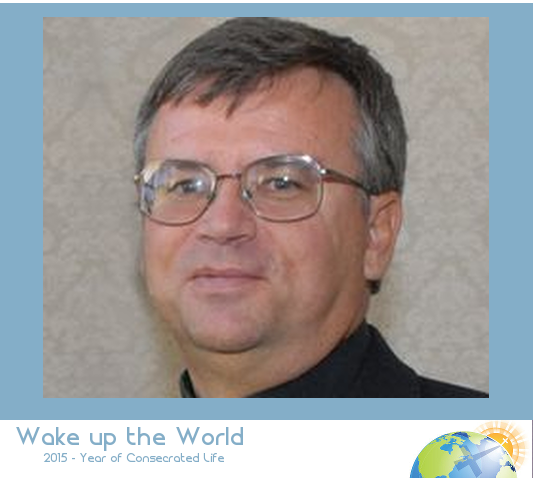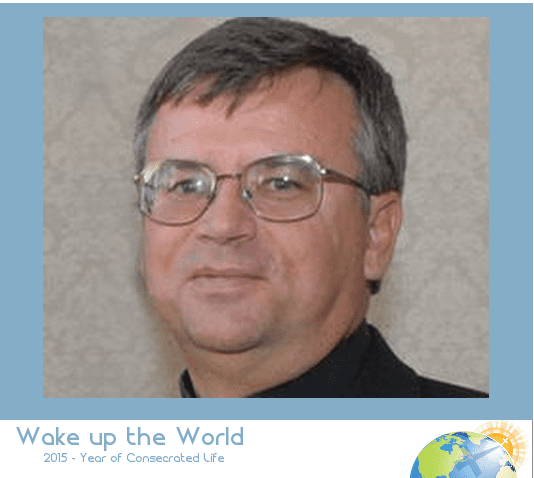Patrick Griffin, CM – A Note to Vincentians
 In “A Note to Vincentians” Father Patrick Griffin, CM continues his series of reflections “Considering Consecrated Life”
In “A Note to Vincentians” Father Patrick Griffin, CM continues his series of reflections “Considering Consecrated Life”
Laudato Si’ merits a close and careful reading by Vincentians. Many, many paragraphs reflect a concern for the poor. With this encyclical Francis intends “to address every person living on this planet” (3), but in doing so, he does not surrender any specifically Catholic position nor does he pause from a relentless critique of capitalism as it engenders consumerism. He does not seek to win allies through compromise or diplomatic language. (It makes me recall how neither Jesus nor Paul diminished their message to please their listeners. Many separated themselves from Jesus after the “Bread of Life” discourse [Jn 6:66], and many backed away from Paul as he began to speak about the resurrection [Acts 17:32].) Francis speaks, for example, of the malice of abortion (120) and the way in which unchecked consumption breeds waste and greed (50). He argues that those who place the problems of our world in the realm of uncontrolled population growth refuse to accept responsibility for extreme and selective consumerism (50). I suggest that no one can read this encyclical without feeling the need for some change of life. Francis’ attitude places him firmly in line with the thinking of his predecessors from Paul VI to Benedict, as well as other Christian traditions.
The Holy Father says that a number of themes will return regularly during the course of his letter. First among these is the intimate relationship between the poor and the fragility of the planet (16). He explores that subject from numerous directions. At the end, no attentive reader will doubt the ways in which a degraded environment impacts the neediest among us. We perceive many environmental problems singly, but when we see them gathered together in one eloquent piece their impact is stunning. Let me suggest briefly one simple example which is familiar to many and which galvanizes some into action.
Water. This most essential of human resources influences the poor in a paradoxical way. First of all, sometimes there is too much of it. With the melting of the polar icecaps and the subsequent raising of the water levels in coastal areas (24), the poor who live in those areas are harmed. Flooding forces them from their homes and resources so that they become refugees with little hope of succor. Secondly, sometimes too little potable water is available. Pollution of a water supply due to mining or chemicals or other means makes it unusable for a native people. The animals upon which they depend migrate, and the local inhabitants are forced to move with them. Thus emerges another circumstance which forces them to become refugees. How is it that people who suffer in so many other ways cannot have the simple pleasure of a sip of water?
The control of this essential resource by some worldwide corporations offers a frightening view of a possible future.
Greater scarcity of water will lead to an increase in the cost of food and the various products which depend on its use. . . . it is also conceivable that the control of water by large multinational businesses may become a major source of conflict in this century. (31)
(Interestingly, the 2008 James Bond movie, “A Quantum of Solace,” focuses on this very point.)
One cannot ignore the Gospel connections to water. Jesus asks the woman at the well for a drink (John 4). On the cross, Jesus seeks a sip to slake his thirst. (Would not the offer of some cool, clean water bring comfort to our Savior?) Jesus is baptized in the waters of the Jordan; he changes water into wine at the wedding feast of Cana; on the cross water flows from his pierced side. The salvific importance of giving a cup of water to the “little ones” (Mk 9:41) or to the thirsty (Matt 25:35) emerges forcefully. We should not read these calls as metaphor or hyperbole! As so often, the Psalmist speaks of the beauty and importance of the natural world, in this case water:
You visit the earth and water it,
make it abundantly fertile.
God’s stream is filled with water;
you supply their grain.
Thus do you prepare it:
you drench its plowed furrows,
and level its ridges.
With showers you keep it soft,
blessing its young sprouts.
You adorn the year with your bounty;
your paths drip with fruitful rain.
The meadows of the wilderness also drip;
the hills are robed with joy.
The pastures are clothed with flocks,
the valleys blanketed with grain;
they cheer and sing for joy.
(Ps 65:10-14)
These verses of God’s word remind us to be deeply concerned for the water needs of our world, both for those who are poor and also for our heirs.
These few observations around water identify a single area of concern which Francis raises in his encyclical. The way in which these situations impact the poorest among us cannot be ignored by our Vincentian souls. Laudato Si’ can function as a note from the Holy Father to Vincentians. The summons which started Augustine on his road to conversion can speak to us in these days: Tolle lege—“Take and read.”







0 Comments